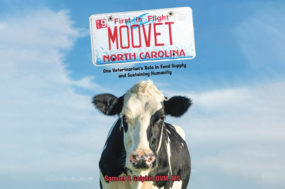Digest Highlights: Upstate Niagara to buy Kraft-Heinze cheese facility. California heat wave results in heavy cow losses. French companies agree to Stonyfield sale. Find a summary of these and other news here.
Upstate Niagara to buy Kraft-Heinz cheese facility
Upstate Niagara, a dairy cooperative with about 360 farm members in New York, will acquire Kraft-Heinz’s Campbell, New York, facility. The plant, located 70 miles southeast of Rochester, produces string cheese, mozzarella cheese and other Italian cheese varieties.
The plant has been at risk of closure for some time. New York Governor Andrew M. Cuomo and U.S. Senator Charles Schumer (D-New York) said they brokered a deal with Kraft-Heinz officials to prevent closure of the plant in November 2015, following the merger of Kraft and the H. J. Heinz Company. The merger triggered an internal company review, putting facilities at Avon, Walton, Lowville and Campbell in line for closure
Under that agreement, Kraft-Heinz continued operating the Avon, Walton and Lowville plants while modernizing operations. Additionally, Kraft-Heinz deferred its planned closure of the Campbell plant, working with state, federal and local officials to identify a new operator.
As part of the Upstate Niagara transaction, Kraft-Heinz has pledged an ongoing investment of $3-$5 million to improve and maintain the Campbell facility.
Upstate Niagara also reached an agreement with New York’s Empire State Development (ESD), committing to invest $10 million and retain the remaining 125 jobs as well as grow employment back to no less than 150 within one year. In return, ESD has offered a grant of up to $5 million to assist with transitioning the facility, including the purchase and installation of machinery and equipment.
Upstate Niagara has dairy facilities in Rochester, West Seneca, Batavia, Buffalo and North Lawrence in New York, as well as Williamsport, Pennsylvania.
California: Heat wave overwhelms cattle carcass rendering facility
Central California dairy producers were given temporary cattle carcass disposal alternatives after heat-related death losses overwhelmed the handling capacity of a large renderer.
Under the order, dairy farmers could directly transport cattle carcasses to an alternative rendering facility or a permitted landfill if one can be located which will accept them; temporarily store mortalities on their farm in composting piles for later transport to a permitted landfill; or permanently bury mortalities on farm in an emergency landfill.
State officials said nine straight days of triple-digit temperatures in June resulted in heavy death losses. Combined with a mechanical malfunction at its facility, Baker Commodities stopped picking up dead animals from farms.
Multiple counties in California’s Central Valley declared a state of emergency, clearing the way for other disposal methods developed through the California Department of Food and Agriculture and other industry and governmental agencies.
Baker Commodities was set to resume normal service on July 3. However, once decomposition reaches a certain stage, carcasses can no longer be rendered.
French companies agree to Stonyfield sale
Danone announced an agreement to sell a U.S. subsidiary, Stonyfield, to Lactalis for $875 million.
The sale of yogurt maker Stonyfield, headquartered in New Hampshire, is subject to final U.S. Department of Justice (DOJ) approval, and is expected in the third quarter of this year.
Lactalis American Group is a subsidiary of Parmalat S.p.A., an Italian public entity majority-owned by Groupe Lactalis. Headquartered in France, Groupe Lactalis is the world's largest dairy corporation, and is the parent company of Sorrento Lactalis, Lactalis USA and Mozzarella Fresca.
The sale of Stonyfield addresses DOJ antitrust settlement terms in connection with Danone's recent $12.5 billion acquisition of The WhiteWave Foods Company Inc. Without the divestiture, DOJ said the WhiteWave acquisition likely would reduce competition for raw and fluid organic milk, potentially harming consumers and Northeast U.S. dairy farmers.
According to DOJ, Danone’s long-term strategic partnership and supply and licensing agreements with WhiteWave’s primary competitor, CROPP Cooperative (CROPP), would have provided incentives and opportunities for cooperative behavior between the two leading purchasers of raw organic milk in the Northeast. Similarly, the proposed acquisition would have aligned the interests of the producers of Stonyfield, Horizon and Organic Valley, the only three national fluid organic milk brands, and risked higher prices and fewer choices for U.S consumers. ![]()

-
Dave Natzke
- Editor
- Progressive Dairyman
- Email Dave Natzke





